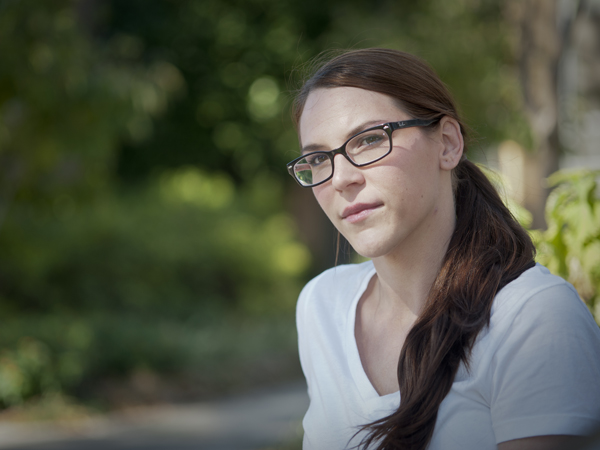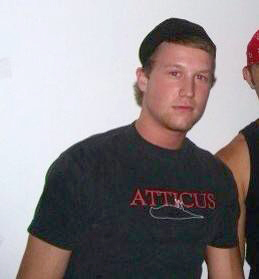Out of the Darkness, into the light of suicide awareness

The last thing Jennifer Mooney expected was for her best friend since third grade, a wonderful guy who specialized in making people laugh, to die by suicide.
But that’s what happened in 2007, the year after she left Natchez to begin college. Her friend, Todd Lipscomb, remained home in Vidalia, La., just across the river.
“When I heard the news, I couldn’t believe it. He was the funniest, sweetest, kindest person you ever met. That’s what shocked everybody,” said Mooney, a research technician in UMMC’s Department of Pharmacology and Toxicology.

It was only after the fact, Mooney said, that she and those close to Todd got the education they needed to recognize some warning signs: His possible prescription addiction. Depression. Uncharacteristic aggression. Withdrawal from life.
“One important thing to understand is that depression is a key contributing factor to suicide, and unfortunately, perceptions of stigma can prevent people from seeking help,” said Dr. Courtney Bagge, UMMC assistant professor of psychiatry, whose research focuses on suicidal behaviors.
“Depression is a medical disorder, just like heart disease or diabetes. It’s not a condition you just snap out of, but there are very effective treatments,” she said.
Bagge said signs that someone could be suicidal include persistently feeling sad, having lack of interest in things usually enjoyed, difficulty concentrating, indecisiveness, and behavior changes that are out of character, such as secluding yourself or staying in bed. “You may notice you are hitting the decline button on your phone, or canceling plans,” Bagge said.
Other warning signs for suicide, in yourself or someone else, may include increased problems with sleep, withdrawal from others, agitation, reckless behavior, and increased use of alcohol or drugs.

“Feeling hopeless or like you have no purpose, talking about death or dying, or not wanting to be here anymore … Those are huge, huge warning signs,” Bagge said.
Suicide prevention also can mean taking action. “Help them to seek help from a professional,” Bagge said. “If someone tries to push you away, that’s the depression talking. You might have to push through that barrier, and it’s important to keep checking in with them.”
“I beat myself up for a long time, because I felt I should have noticed, or should have known,” Mooney said.
But she put her feelings into action, five times taking part in the Out of the Darkness Community Walk, sponsored by the American Foundation for Suicide Prevention, that brings awareness and give participants tools for suicide prevention. “Knowing that suicide is the fourth leading cause of death for Americans ages 15-64 made this so much more important to me,” Mooney said.
She participated in the Natchez and Vidalia walks that celebrated the lives of those now gone. On Nov. 8, she will chair the first Jackson metro walk, set for 9-11 a.m. at the Nature Park on Flowood Drive behind Winner’s Circle Park in Flowood.
It’s free, but teams are encouraged to raise money for the foundation. To register, go to http://afsp.donordrive.com/index.cfm?fuseaction=donorDrive.event&eventID=3036
“They are a great way for families to come together and support each other,” Mooney said of the walks. “Forming a team is encouraged, but you can walk on your own. There will be a memory board where family and friends can put photos of their loved ones, and a balloon release after the walk.”
The walks also serve a much deeper purpose, Mooney said.
“At first, I thought it would be a site of mourning,” Mooney said of her first walk. “I just didn’t want to relive it. But when I did it, I saw that it helped with the healing process, and I wanted to bring it here.
“We can reach a lot of people – and we can educate them.”


